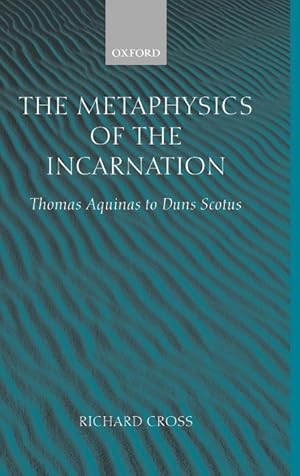9780199244393 - Augustine's Commentary on Galatians: Introduction, Text, Translation, and Notes (Oxford Early Christian Studies) von Plumer, Eric (4 Ergebnisse)
Suchfilter
Produktart
- Alle Product Types
- Bücher (4)
- Magazine & Zeitschriften (Keine weiteren Ergebnisse entsprechen dieser Verfeinerung)
- Comics (Keine weiteren Ergebnisse entsprechen dieser Verfeinerung)
- Noten (Keine weiteren Ergebnisse entsprechen dieser Verfeinerung)
- Kunst, Grafik & Poster (Keine weiteren Ergebnisse entsprechen dieser Verfeinerung)
- Fotografien (Keine weiteren Ergebnisse entsprechen dieser Verfeinerung)
- Karten (Keine weiteren Ergebnisse entsprechen dieser Verfeinerung)
- Manuskripte & Papierantiquitäten (Keine weiteren Ergebnisse entsprechen dieser Verfeinerung)
Zustand Mehr dazu
- Neu (3)
- Wie Neu, Sehr Gut oder Gut Bis Sehr Gut (Keine weiteren Ergebnisse entsprechen dieser Verfeinerung)
- Gut oder Befriedigend (1)
- Ausreichend oder Schlecht (Keine weiteren Ergebnisse entsprechen dieser Verfeinerung)
- Wie beschrieben (Keine weiteren Ergebnisse entsprechen dieser Verfeinerung)
Einband
Weitere Eigenschaften
- Erstausgabe (Keine weiteren Ergebnisse entsprechen dieser Verfeinerung)
- Signiert (Keine weiteren Ergebnisse entsprechen dieser Verfeinerung)
- Schutzumschlag (Keine weiteren Ergebnisse entsprechen dieser Verfeinerung)
- Angebotsfoto (2)
Sprache (1)
Preis
- Beliebiger Preis
- Weniger als EUR 20 (Keine weiteren Ergebnisse entsprechen dieser Verfeinerung)
- EUR 20 bis EUR 45 (Keine weiteren Ergebnisse entsprechen dieser Verfeinerung)
- Mehr als EUR 45
Gratisversand
- Kostenloser Versand nach USA (Keine weiteren Ergebnisse entsprechen dieser Verfeinerung)
Land des Verkäufers
Verkäuferbewertung
-
Augustine's Commentary on Galatians: Introduction, Text, Translation, and Notes
Anbieter: Buchpark, Trebbin, Deutschland
Zustand: Gut. Zustand: Gut | Sprache: Englisch | Produktart: Bücher.
-
EUR 206,75
EUR 48,99 für den Versand von Deutschland nach USAAnzahl: Mehr als 20 verfügbar
In den WarenkorbEinband - fest (Hardcover). Zustand: New. Now available in English for the first time, Augustine s Commentary on Galatians is his only complete, formal commentary on any book of the Bible and offers unique insights into his understanding of Paul and of his own task as a biblical interpreter. In add.
-
Augustine's Commentary on Galatians | Introduction, Text, Translation, and Notes
Anbieter: preigu, Osnabrück, Deutschland
Buch. Zustand: Neu. Augustine's Commentary on Galatians | Introduction, Text, Translation, and Notes | Eric Plumer (u. a.) | Buch | Englisch | 2003 | OUP Oxford | EAN 9780199244393 | Verantwortliche Person für die EU: Libri GmbH, Europaallee 1, 36244 Bad Hersfeld, gpsr[at]libri[dot]de | Anbieter: preigu.
-
Augustine's Commentary on Galatians : Introduction, Text, Translation, and Notes
Verlag: Oxford University Press Feb 2003, 2003
ISBN 10: 0199244391 ISBN 13: 9780199244393
Sprache: Englisch
Anbieter: AHA-BUCH GmbH, Einbeck, Deutschland
Buch. Zustand: Neu. Neuware - Now available in English for the first time, Augustine's Commentary on Galatians is his only complete, formal commentary on any book of the Bible and offers unique insights into his understanding of Paul and of his own task as a biblical interpreter. Yet it is one of his least known works today - and this despite its importance in the past for such major figures as Aquinas, Luther, Erasmus, and Newman. The present volume seeks to remedy this situation by providing not only an English translation with facing Latin text, but also a comprehensive introduction and copious notes. Since Galatians happens to be the only biblical book commented upon by all the ancient Latin commentators - including Jerome, Pelagius, Ambrosiaster, and Marius Victorinus, as well as Augustine - it provides a basis for comparing them and for identifying Augustine's special concerns and emphases. Augustine's Commentary also has crucial links to other works he wrote at the time, especially his monastic rule and De Doctrina Christiana. Augustine's emphasis on Galatians as a pastoral letter designed to preserve and strengthen Christian unity links the commentary to his monastic rule, while his method and sources link it to, and indeed pave the way for, the theory of biblical interpretation set forth in the De Doctrina Christiana.




